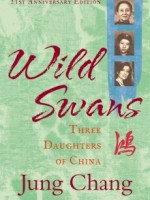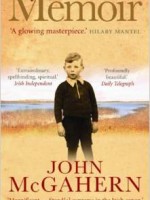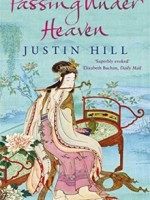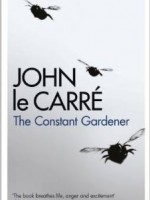(Published by Phoenix)
 |
In recent years, the book market has been flooded with Oriental tomes detailing life in pre-Revolution China. Works like ‘Memoirs of a Geisha’ and ‘Wild Swans’ painted portraits of Chinese womanhood that gripped the west and pushed sales through the roof. We were bombarded with tales of repression under Mao, where bound feet and mass book burning were used as cultural bricolage for Chinese identity. ‘The Drink and Dream Teahouse’ breathes life back into representations of modern China, and steers away from the historical memoir genre. While the book is about history, it also examines the past and present through a series of characters’ lives.
Shaoyang is a town that has weathered communist repression but suffered the closure of its space rocket factory, the main source of employment for local residents. The book opens with the death of Party Secretary Li; his sudden suicide standing out as a symbol of disillusionment with a new society that hasn’t measured up to expectations. Madame Fan sings old opera songs on her balcony, despising her husband and plotting a suitable marital alliance for her daughter Peach, who begins a confused affair with a peasant shop owner. Meanwhile, the Zhu neighbours become the envy of the town when their prosperous prodigal son, Da Shan, returns. The older characters lament the loss of their youth but their memories are intertwined with repression and secrecy.
Da Shan has made good in the big city, but is tortured by the loss of his first love Liu Bei: they were torn apart by political upheaval a decade earlier. Like most of the older characters, he too looks to the past, attempting not only to trace his heritage, but to find Liu Bei as well. Contrast and destiny heavily underline each character’s experience in the book. Da Shan and Liu Bei were once idealistic student activists who participated in the Tiananmen Square demonstrations in the late 1980s, ten years on their lives are very different. Da Shan’s past principles starkly contrast with his modern day wealth, and Liu Bei is a poverty stricken single mother, forced to work as a prostitute at the Drink and Dream Teahouse.
Hill paints a dichotomous picture of China, one moment a tender painting on a porcelain cup, another a rough canvas of unhappiness and failed expectations. He writes as an objective observer, eking out the cultural mores of a society that was promised much, but instead handed suppression, deception and denial. Food, plants and people are described in attentive detail, making this work a rounded, colourful tale full of life, love, memory and expectation. There are elegiac splashes of beauty throughout, but the book also resists the urge to tie up every detail. Although the ending is unpredictable, it implies continuity, as if we have quietly stepped into a portion of these character’s lives and surreptitiously stepped back out – the wheel of life will keep turning. This is an enjoyable debut that should lull you back to reading oriental titles if you’d had enough of Geisha books.
Passing Under Heaven by Justin Hill
To read an interview with Justin Hill click here



